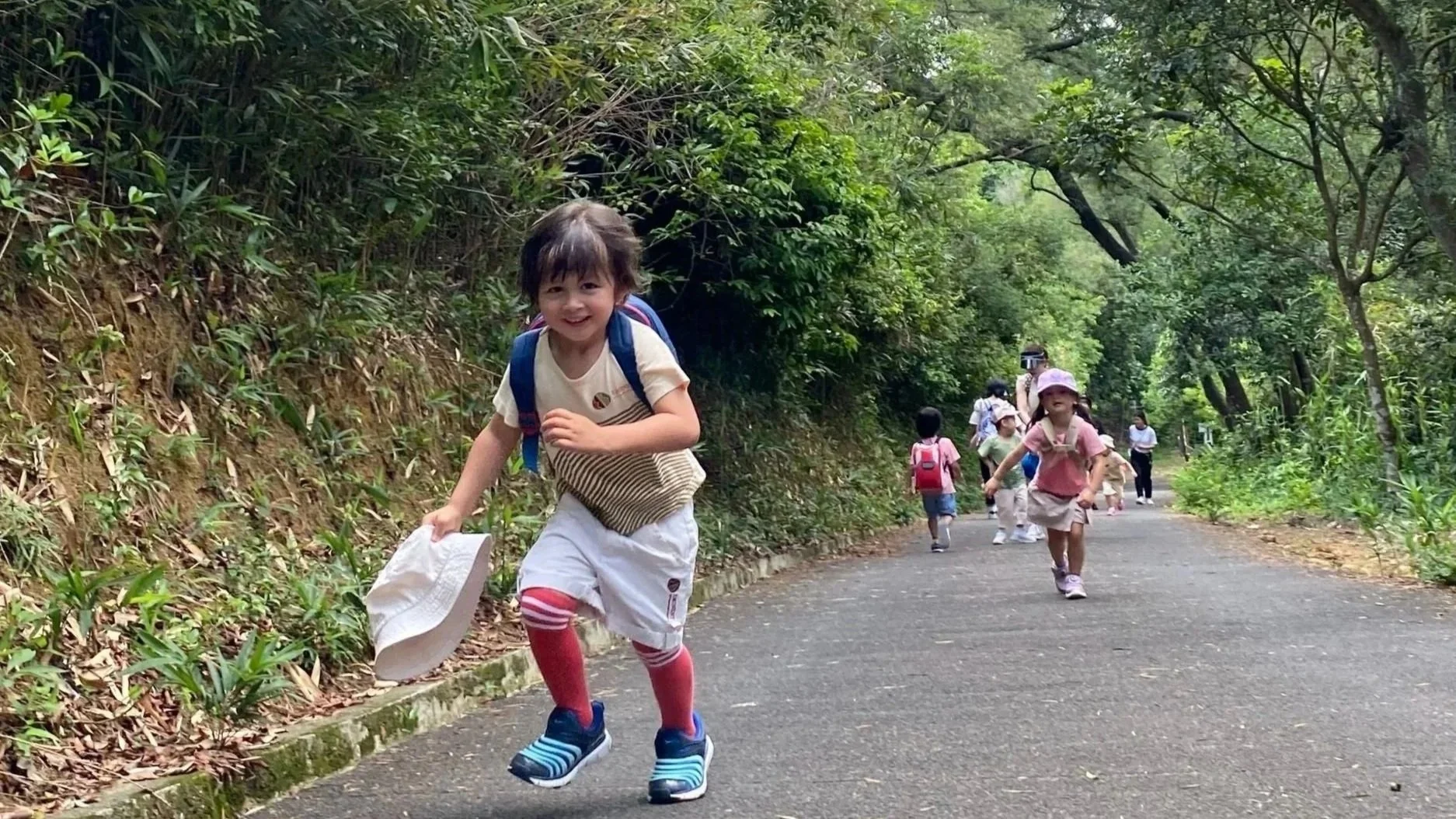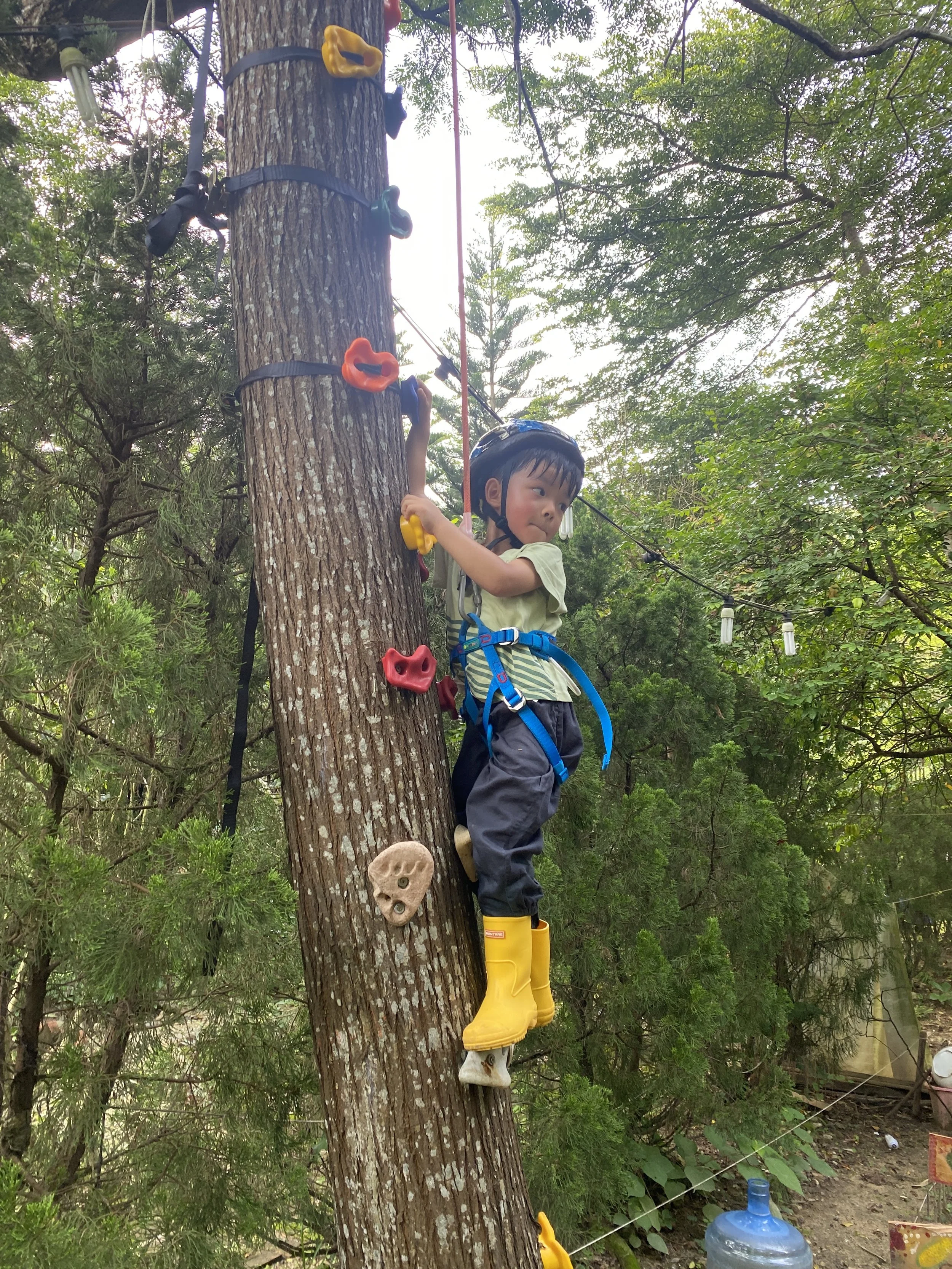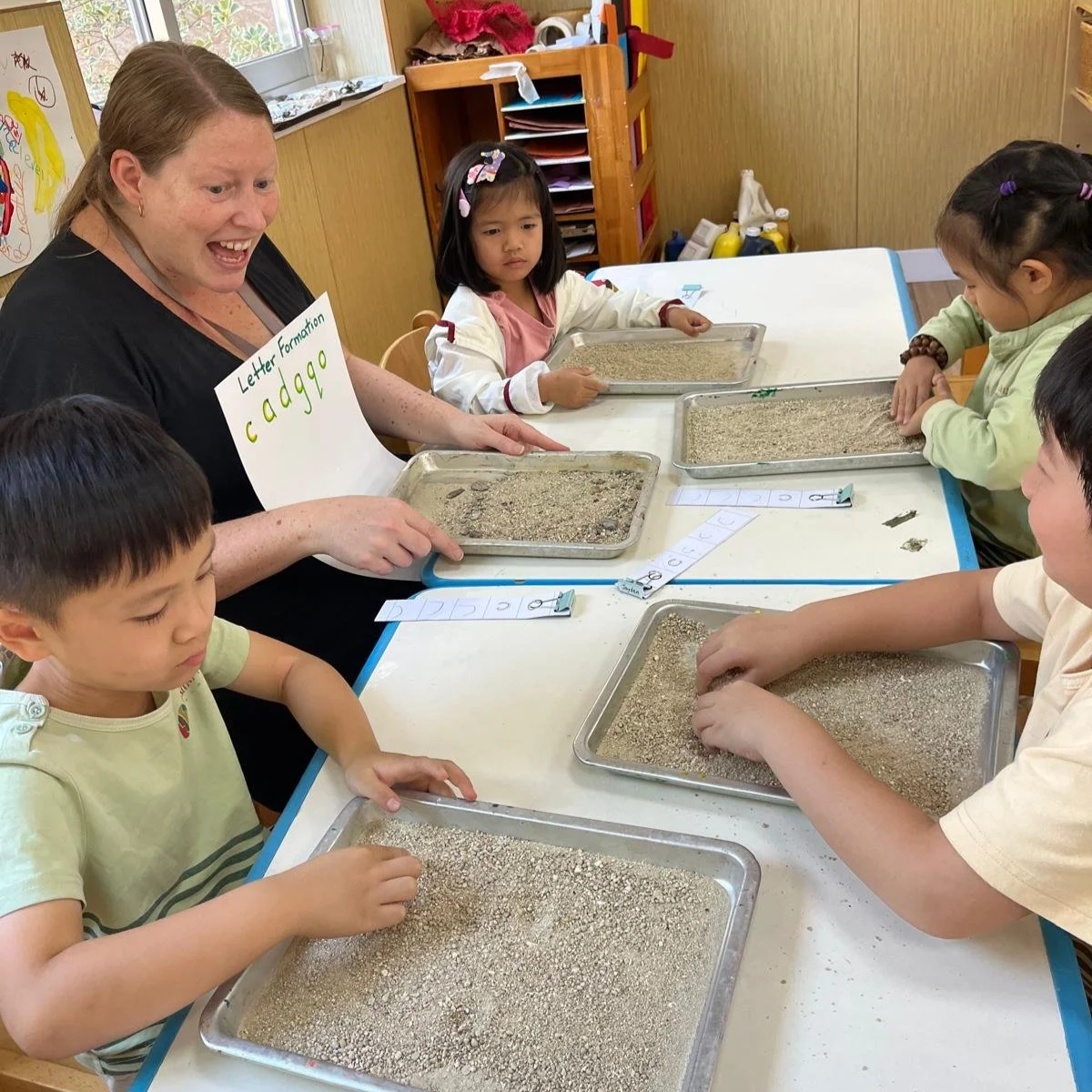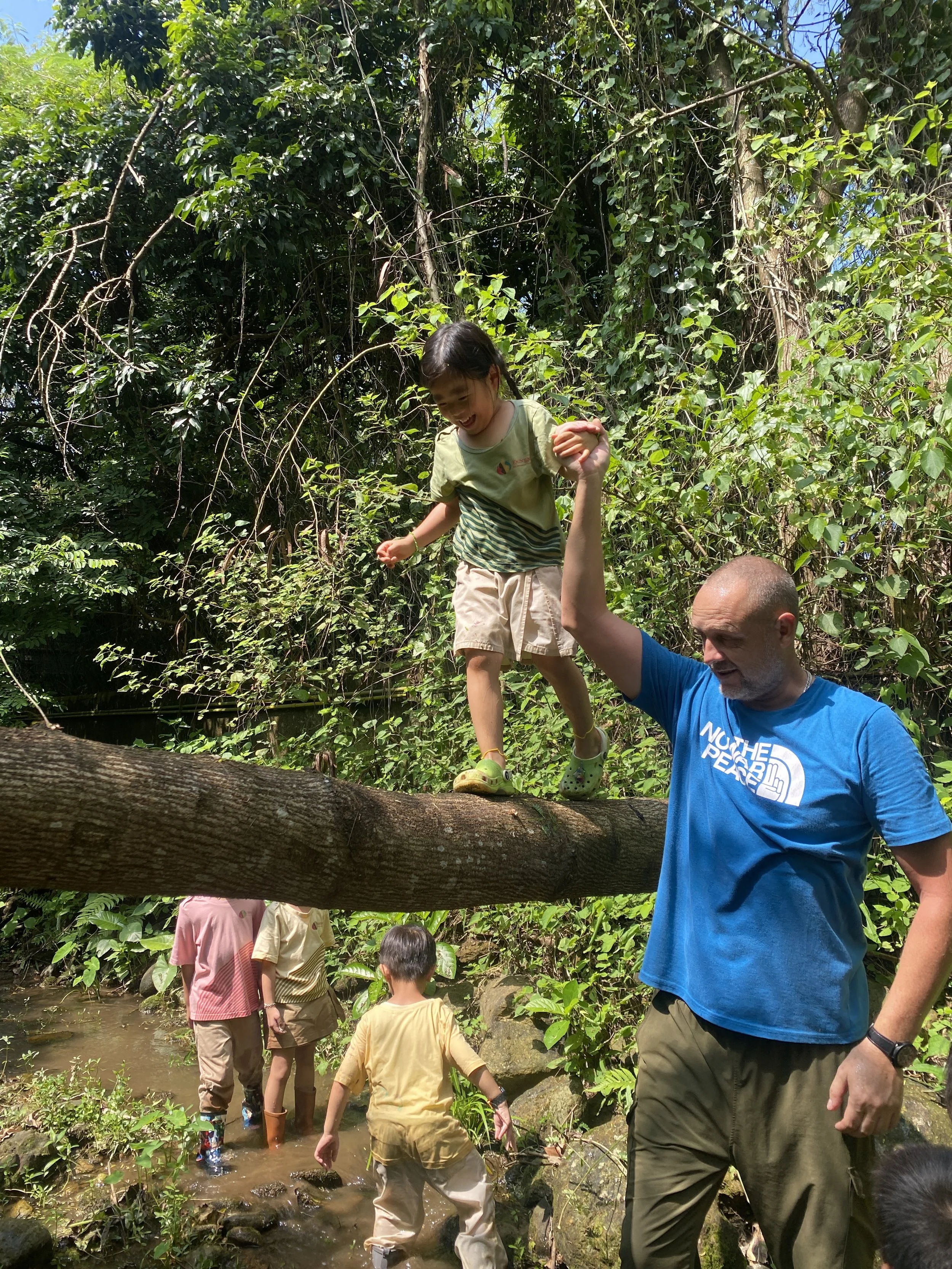The meaning of “knowing” is no longer about being able to remember and repeat information, but being able to find and use it. To advocate our children to become knowledge builders, we encourage them to hit their boots to the mud and learn through their senses - see, hear, touch, feel and even taste the sun and rains.
With the opportunity to grow their own food in our campus’ organic farm or in the nearby Forest Academy, our children have no shortage of surprises to provoke their eagerness to learn. Through collective exploration and genuine quest, our children develop the skills and knowledge they need as a person and as a member of the society.
Why learning in nature?
Eminent fosters proactive learning by having teachers act as facilitators, learning alongside children. By fostering a partnership in learning, teachers model the importance of inquiry and adaptability, inspiring children to take ownership of their educational journey.


Benefits of nature-based learning
Nature-based learning is proved to bring enormous benefits to children.
Increased motivation for life-long learning | Wilson, 1997
Increased powers of observation and creativity | Crain, 2001
Improved awareness, reasoning, and observational skills | Pyle, 2002
Improved ability to concentrate | Taylor et al., 2001
Improved personal skills including confidence, social skills, self-efficacy | Dillon, J., Morris, M., O’Donnell, L., Reid, A., Rickinson, M., & Scott, W., 2005
Increased analytical, problem-solving, and critical thinking skills, and integration of math, science, language arts, social sciences and other subjects | Bartosh, 2006
Increased children’s concern for the environment | Palmer, 1993
How does conventional school, outdoor play school compare to EIS International Preschool?
Teacher as facilitator
Parents as teaching partners
Tailored environment that enables safe outdoor and nature-based play for any weather
Group size no more than 22
Child-initiated learning through exploration and quest
Teacher as instructor
Passive role for parents
Outdoor play subject to weather conditions
Group size no more than 22
Structured activities to meet specific objectives
Teacher as instructor and provider
Passive role for parents
Always indoor
Group size up to 30
Passive learning by following instructions

Our curriculum framework
Eminent’s curriculum is based on The Early Years Foundation Stage (EYFS) framework that supports an integrated approach to early learning and care. It gives us a set of common principles and commitments to deliver quality early education and childcare experiences to all children.
Four guiding principles of EYFS curriculum shape our professional practices:
Every child is a competent learner and is continuously learning. They can be resilient, capable, confident and self-assured.
Children learn to be strong and independent through loving and secure relationships with parents and teachers.
The environment and people around them play important roles in supporting and extending a child’s development and learning.
Children develop and learn in different ways and at different rates and all areas of learning and development are equally important.
The EYFS curriculum is composed of seven areas of learning and development:
1. Communication and language development
Give our children opportunities to experience a rich language environment; Develop their confidence and skills in expressing themselves; and to speak and listen in a range of situations
Provide opportunities for young children to be active and interactive; and to develop their co-ordination, control, and movement. Children must also be helped to understand the importance of physical activity, and to make healthy choices in relation to food
2. Physical development
3. Personal, social and emotional development
Help children to develop a positive sense of themselves, and others; to form positive relationships and develop respect for others; to develop social skills and learn how to manage their feelings; to understand appropriate behaviour in groups; and to have confidence in their own abilities
Encourage children to link sounds and letters and to begin to read and write. Children must be given the access to a wide range of reading materials (books, poems, and other written materials) to ignite their interest
4. Literacy development
Provide children with opportunities to develop and improve their skills in counting, understanding and using numbers, calculating simple addition and subtraction problems; and to describe shapes, spaces, and measure.
5. Mathematics
6. Understanding the world
Guide children to make sense of their physical world and their community through opportunities to explore, observe and find out about people, places, technology and the environment
Enable children to explore and play with a wide range of media and materials, as well as providing opportunities and encouragement for sharing their thoughts, ideas and feelings through a variety of activities in art, music, movement, dance, role-play, and design and technology




















